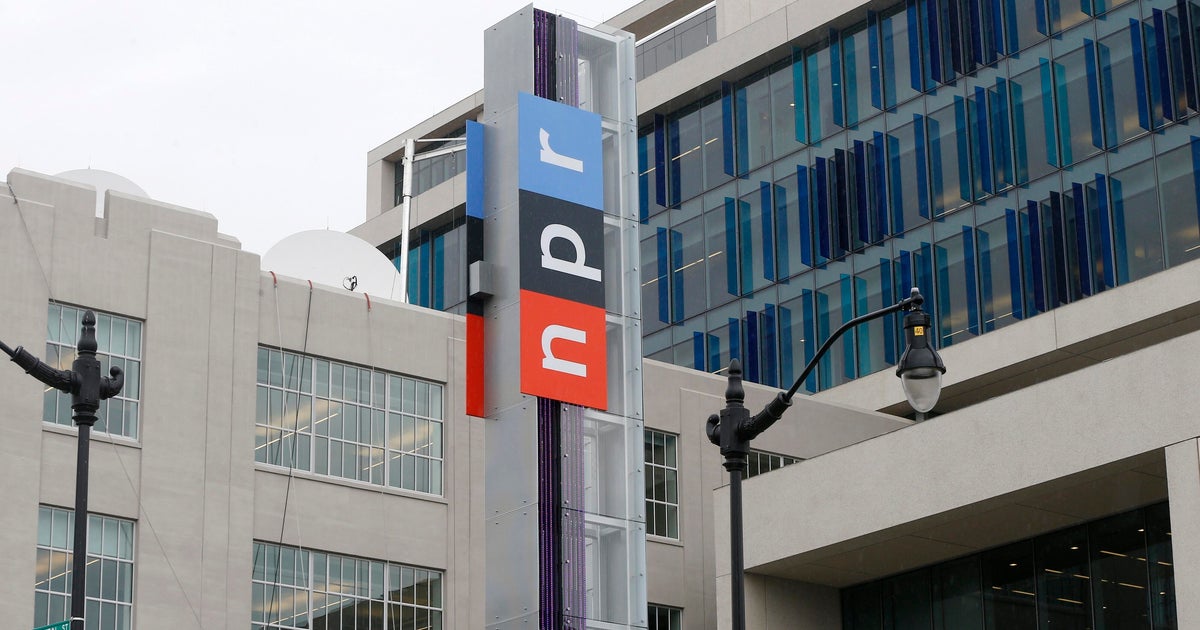Washington – Laying a lawsuit against NPR on Tuesday to President Trump and administration officials on Executive order signed Earlier this month, which seeks to reduce federal funding to the news organization and PBS.
It was submitted to the American boycott court in Washington, DC, suit It was presented by NPR and three public radio stations based in Colorado. He argues that the executive order of Mr. Trump violates the first amendment and the provisions of the General Broadcasting Law, which was approved by Congress in 1967. Prosecutors also confirm that Mr. Trump did not have the power to stop Federal funding for NPR and PBS, and his order must be nullified as unconstitutional.
The matter said, NPR and the three stations in their complaint, is “the revenge of textbooks” and distinguishes on the basis of a view, which is a violation of the first amendment.
“The objectives of the matter cannot be more clear: The matter aims to punish NPR for news content and other programming that the president hates and cools the free practice of the rights of the first amendment by NPR and individual public radio stations throughout the country,” the lawsuit says.
In response to the lawsuit, Harrison Fields, the White House spokesperson, claimed in a statement that the company for the public broadcasting “creates the media to support a specific political party on Daim Tax. Therefore, the president exercises his laws to reduce funding to NPR and PBS. The president was elected to continue the effective use of tax defense.
Mr. Trump and his Republican allies have long complained about NPR and accused her of bias against the conservatives. Project 2025The Map of the Policy Policy, which is supervised by the Heritage Corporation, calls for the dismantling of both NPR and PBS.
The executive order of the President is directed by the Public Broadcasting Corporation, which provides public dollars for NPR and PBS, and other federal agencies to “stop federal funding” and indirect financing of outlets. The guidance said that the taxpayers “have the right to expect that if their tax dollar is designed at all, they only finance fair, accurate, unbiased and non -partisan news coverage.” The White House claimed that the ports “get millions of taxpayers to spread radical propaganda, which woke up as” news “.
NPR is primarily funded through care, donations, membership, licensing fees from local radio stations, direct financing from the institution for public broadcasting and other federal scholarships, although about 1 % of its budget comes directly from federal dollars, according to NPR Catherine Maher. For the fiscal year 2024, NPR has received about $ 11.1 million from grants from the Foundation for programming and supporting the general radio satellite system, which is the general radio interconnection system in the country.
But the executive order for the president who targeted NPR and PBS was just one step to target public media. Last month, President Shoot Three officials of the Public Broadcasting Corporation, which was established by Congress in 1967 as a special non -profit entity to ensure investment in public broadcasting. The company says it distributes more than 70 % of its financing to more than 1500 radio and television stations locally owned.
Members of the Board of Directors of the Public Public Radio Company filed a lawsuit against the Trump administration for their removal, on the pretext that the president had no ability to shoot them.
In a lawsuit, NPR, ASPEN Radio, General Radio Colorado and Public Radio KSUT said that Mr. Trump’s executive order violates the “quick will of Congress” and the first amendment rights. The news has warned that the president’s guidance “threatens the existence of a public radio system on which millions of Americans depend on all over the country on vital news and information.”
“The executive is a clear violation of the constitution and the protection of the first amendment for freedom of expression and the bond, and freedom of the press. It is an insult to NPR and NPR 246 members, which it owns locally, and is locally owned, non -profit, non -profit media organizations that serve all fifty states and lending.” “Today, we challenge its constitutionality in the independent courts in the country.”


